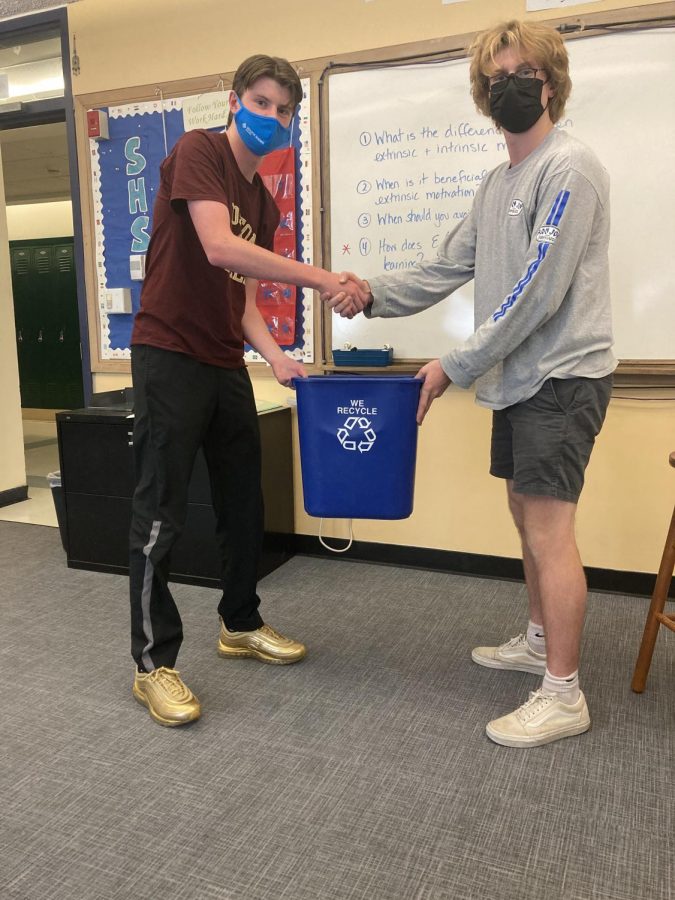Bring Recycling Practices Back to SHS
October 31, 2021
SHS students are all too familiar with the myriad recycling bins in every high school classroom. Many remember a time when these ubiquitous blue bins were emptied during every H Block. However, some students may not be aware that since the pandemic hit, the building’s recycling system has fallen to the wayside. Consequently, Scituate High School no longer follows some familiar recycling practices. Gathering the recycling bins from each individual classroom, for example, has gone from a daily routine to a completely absent practice. Recycling for such a large institution is no simple task. While it is completely understandable that this routine has been lost, the SHS community should strive to be as environmentally friendly as possible.
Many factors went into the decision to end the SHS recycling program. SHS paraprofessional Judith Leahy used to organize the SHS recycling collections, so she shared some perspectives on their reasoning. First, hybrid learning caused a sharp decline in the amount of paper used for schoolwork; consequnetly, “there was a much smaller amount of paper needed to be recycled,” she explained. With a return to in-person learning, the Environmental Club–the organization that traditionally managed the high school’s recycling program–is eager to bring recycling back into the fold at SHS.
Senior Joshua DeMontigny, a student officer of the Environmental Club, shared his thoughts on the school’s new lack of recycling. Though previously unaware of the recycling issue, DeMontigny expressed enthusiasm for a resurgence in recycling, stating, “Being that our number one priority as a club is always to help improve the environment around us in whatever way we can, it’s absolutely an issue we’ll face in the near future.” DeMontigny stressed his strong desire to solve this school-wide concern: “Whether that means as a club getting the program jump-started again, or talking with administration,” he said, “we’re eager to help.”
SHS science teacher and faculty advisor to the Environmental Club, Juvy Hartweg, also shared her thoughts on the possibility of reinstating the program. She expressed a similar readiness as DeMontigny, commenting that it would be “a fantastic way to get community service hours and make more of us more conscious about our waste as a school.” In addition, Hartweg brought a more realistic perspective to the table: even though students are hopeful for recycling to start up again, recycling for any school is an immense undertaking. Hartweg noted that it will require “School Committee approval since there is a cost associated with it.” One of the main points she emphasized is the necessity for student involvement. Though our school community will need teachers to oversee this program and members of the committee to fund it, ultimately the job belongs to students. Self-directedness and outspokenness among the student body is the key to getting this program up and running again.
The possibility of restoring recycling at SHS is an encouraging idea, and many are hopeful the school community will do their best to re-establish the tradition. Although it will require a lot of work and additional funding, the positive effects of bringing the program back will be everlasting. The first step is spreading awareness, gaining support, and encouraging members of the SHS administration and the school committee to make this issue a priority. With a combined effort, it can be done.
